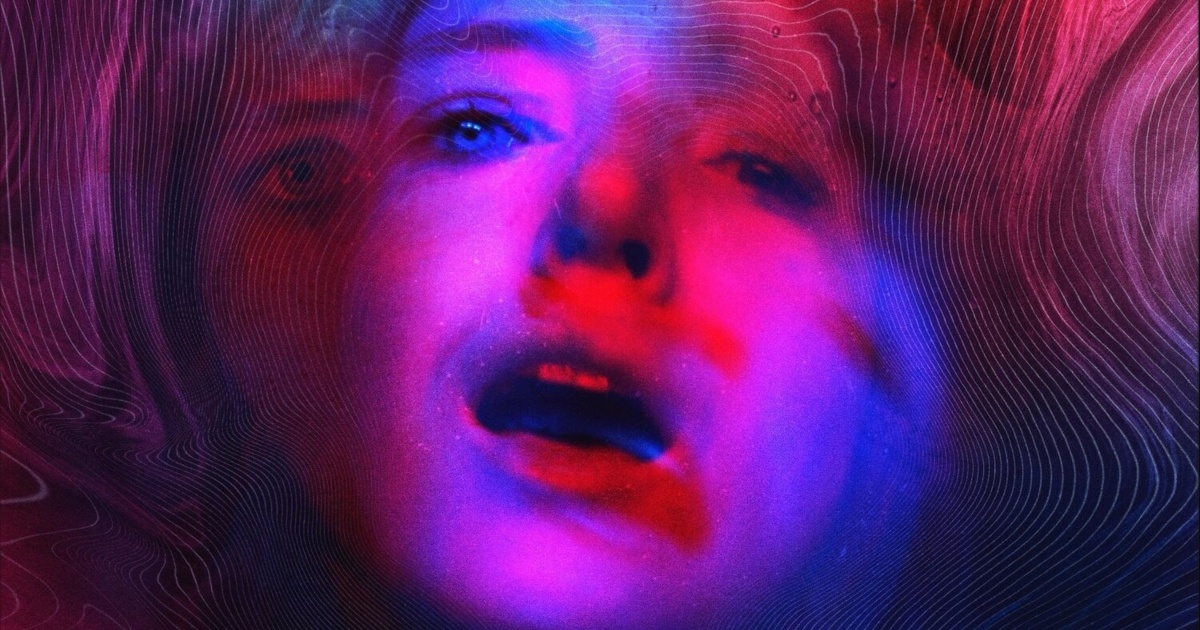
More often than not, a writer describing a film as being “of the moment” or “hauntingly timely” is a sign less of any inherent import within the film itself and more that of a laziness within the writer. Even the smallest of films can take months to be seen by anyone let alone a public audience, so being “timely” is less a specific note than one that shows deep seeded issues within whatever topic is being discussed.
That said, changes in society or culture can certainly increase a film’s import or, in its own way, insight, and the latest film from boundary-pushing experimental filmmaker Amy Seimetz is that very film.
Very broadly speaking a film about mass psychosis, She Dies Tomorrow sees Seimetz returning to the big screen for her first feature since the haunting and beautiful Sun Don’t Shine (she moonlighted as a director on shows like the TV adaptation of The Girlfriend Experience, aka the best TV show you’ve never seen, in between), a film that’s only become more engrossing and captivating as the world continues to implode thanks to the COVID-19 pandemic.
The film stars indie stalwart Kate Lyn Sheil as Amy, a seemingly troubled young woman and recovering alcoholic who, one day, discovers that she’s going to be dying the following day. Musing bleakly to her friend Jane (the always incredible Jane Adams) that she was on the fence about maybe “being made into a leather jacket,” this often darkly comic psychodrama takes Amy’s fear/discovery with the utmost seriousness, we watch as she more or less relapses and begins to mentally break down, flashing back to (what appears to be) some sort of breakup or other trauma from her past that may or may not be the root of this sudden descent into perceived madness.
However, this isn’t just a sole character study either. After being informed of Amy’s forthcoming passing, Jane becomes convinced that she too is on her way out the proverbial door, going so far as to inform those attending a party hosted by her brother that she’s all but certain she’s going to be kicking the bucket by morning. In turn thrusting this worry onto those who cross her path (including but not limited to the likes of Tunde Adebimpe, Michelle Rodriguez and even her doctor played by Josh Lucas). Think Contagion but more thrillingly obtuse, She Dies Tomorrow is at points a film about the way one deals with mortality, collective trauma and mass psychosis, becoming not just one of the more captivating films of 2020 narratively, but an essential text for a moment in history that’s truly unlike any seen before it.
It also happens to be one of the year’s more accomplished works stylistically. Seimetz’s direction is intimate and haunting, her structuring of the film both around Amy’s own mental breakdown as well as the brief hints viewers are given of a past relationship that splintered giving incredible depth and humanity to an otherwise surrealist existential drama. Strangely muted for a film of this ilk, Seimetz’s film is much more interested in atmosphere than anything genuinely scary or terrifying, and even then one watches as each of our characters encounters a series of pulsating lights and colors as they presumably face their final moments and the film suddenly shifts into complete eeriness, playing with nothing more than light, color, sound and the faces of the performers to create something that plays as almost primordial, like she’s achieved something truly and spiritually transcendent.
Kate Lyn Sheil is otherworldly great here, giving another superlative performance. She, throughout her career, has been at her best when given quiet moments, having one of the more quietly expressive and compelling faces in modern film. Here she takes a role that could have easily been one note and imbues each moment with both sincere dread and yet a strange sense of calm that becomes almost blackly comic, adding to the atmospheric nature of the film. For much of the film it does weigh heavily on her shoulders, and she more than holds her own, playing perfectly off someone like Jane Adams whose own slow evolution from credulous and worried to terrified provides the performer enough room to really experiment with things. It’s a textured and engaging performance that helps elevate the film to rare heights. It’s also important to see these two performances in opposition. One of the brilliant aspects of this film, and one of the more emotionally rich, is watching as each of these performers and thus their characters, embody this impending doom in different ways. From being resigned to wanting to end relationships, each character (as any actual human does) face their trauma in a way that feels complete and of a piece with the world around them. It’s strangely beautiful to see this texture given to the film, and crescendos near the end in a series of images that are as unsettling as they are oddly moving. It’s simply unlike anything you’ve ever seen.
Again, while calling any film “timely” or “of the moment” can scream laziness from a hack “culture critic,” in the case of She Dies Tomorrow, it’s less about the film pointing to the moment we live in now and more the inherent terror facing daily life manifesting in raw and deeply felt ways within this film. Seimetz’s latest is simply one of the most haunting and haunted films of 2020 and cements the director as a director as important as had here in the US.



